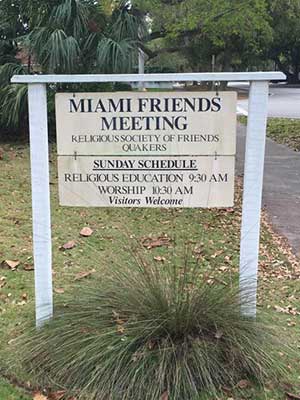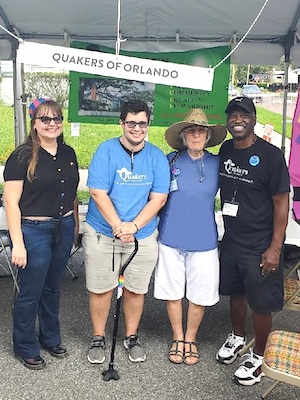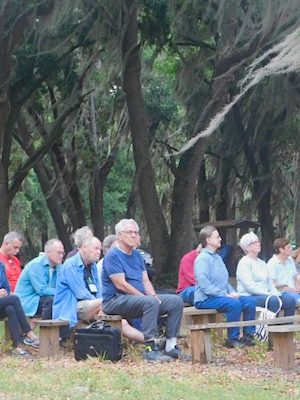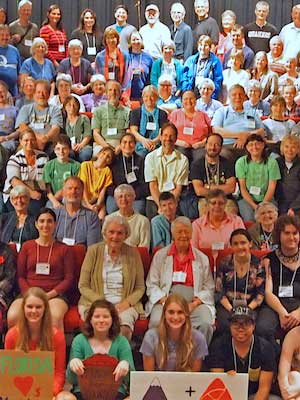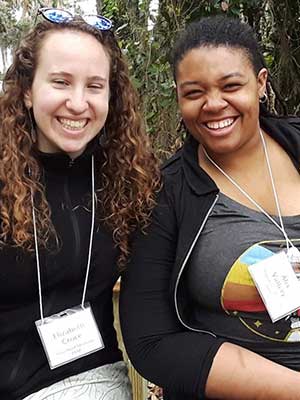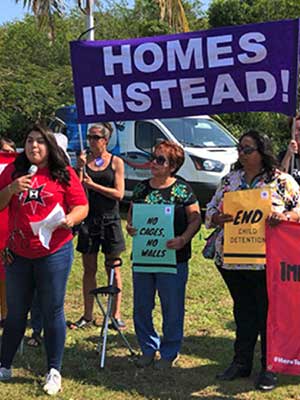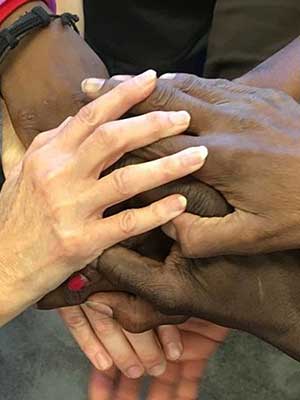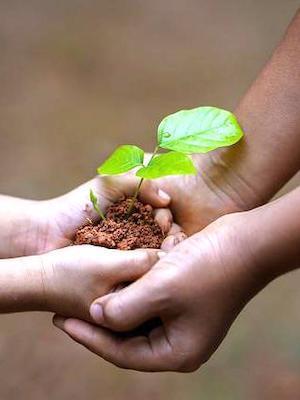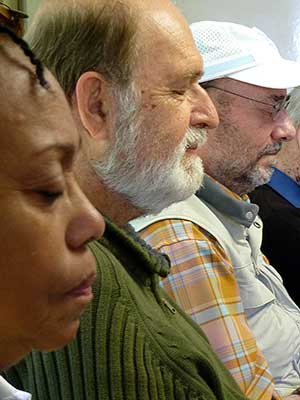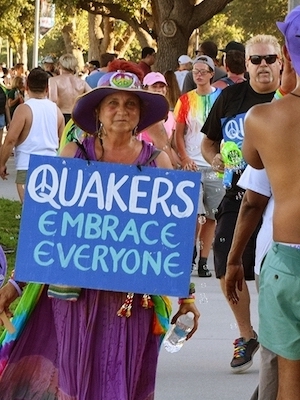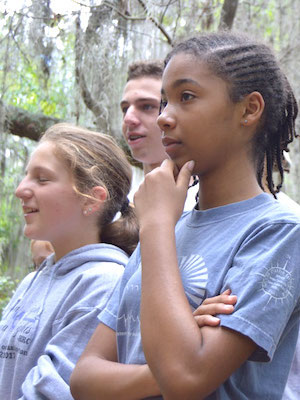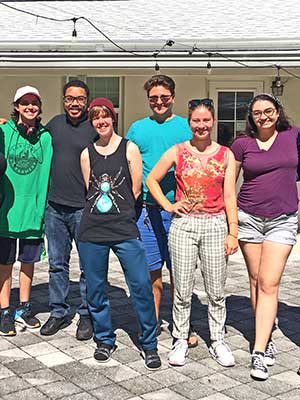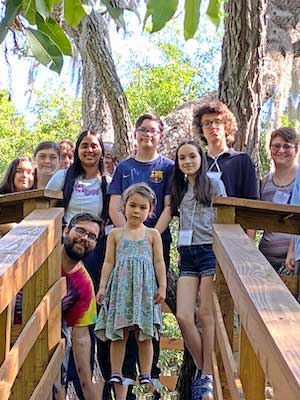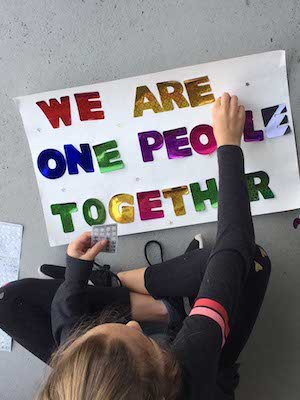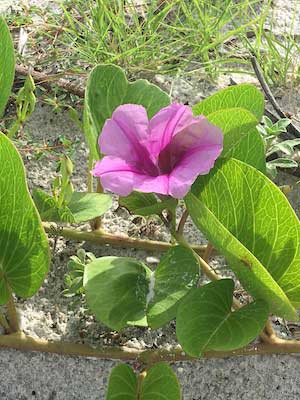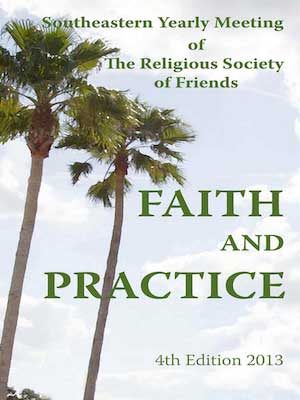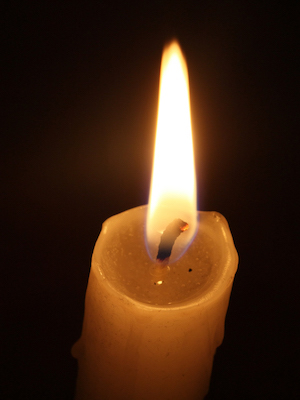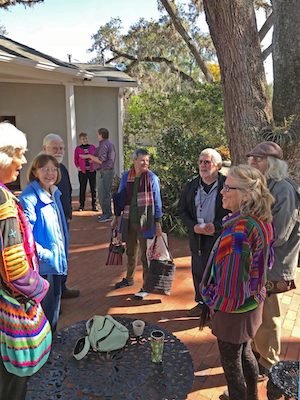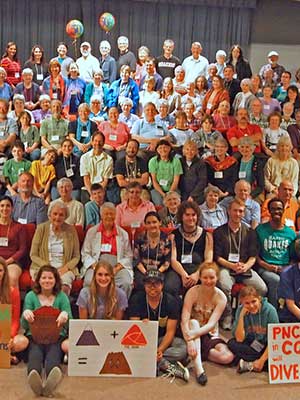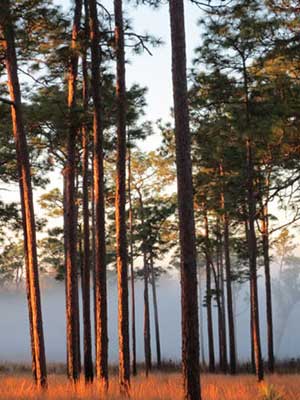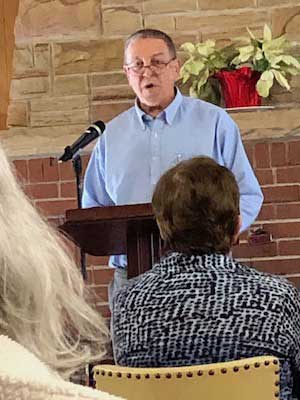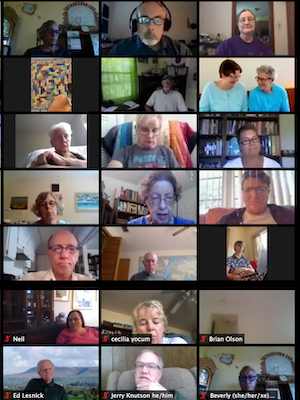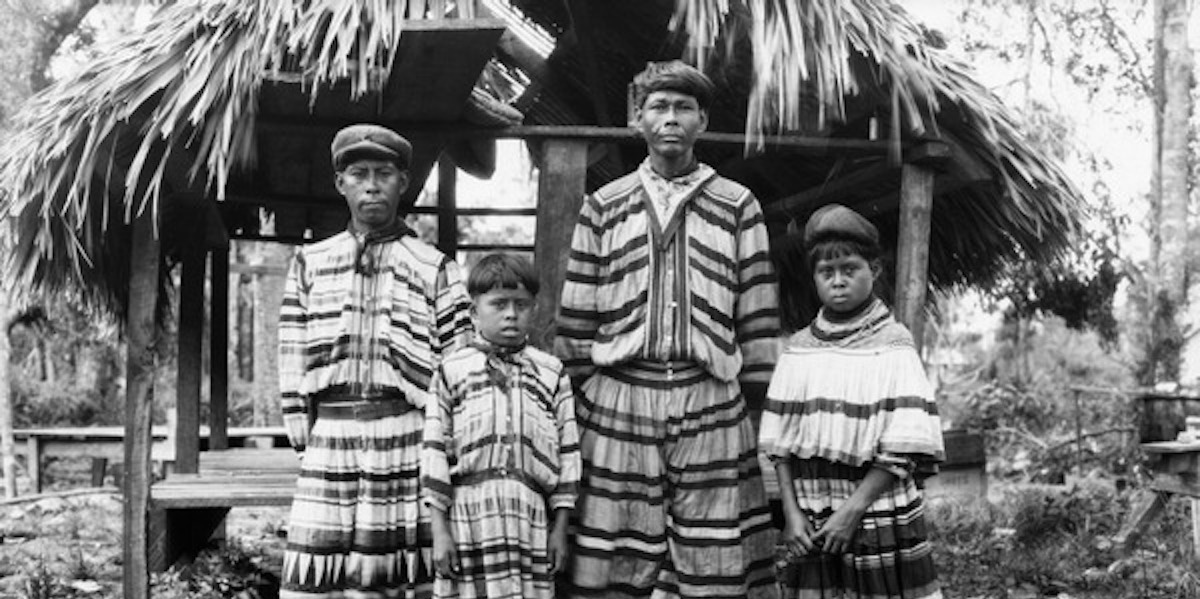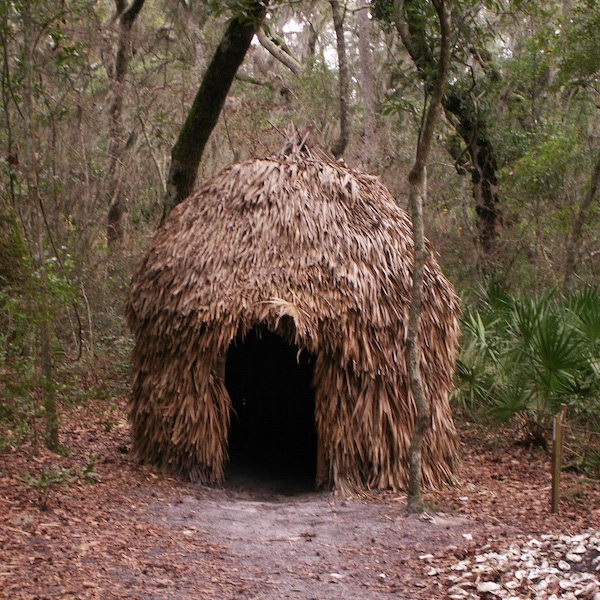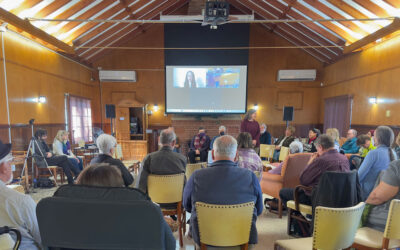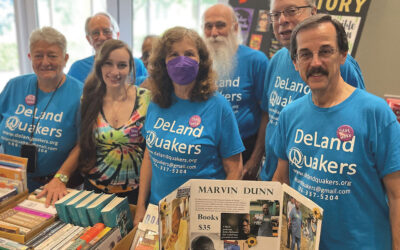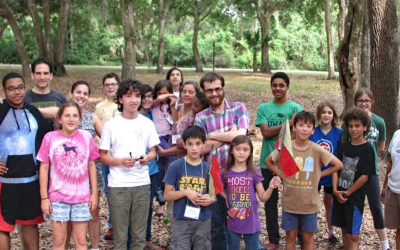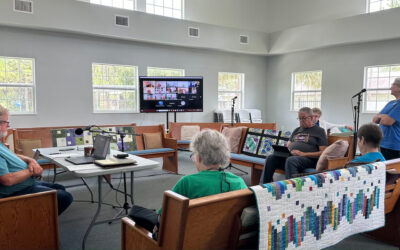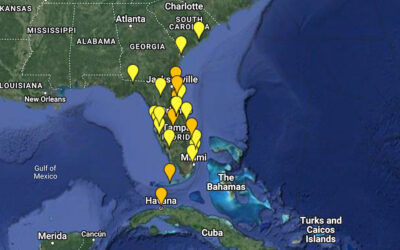Land Acknowledgement
Seminole family
We acknowledge that the monthly meetings of Southeastern Yearly Meeting are on the unceded lands of many different indigenous peoples.
In what is now Florida, coastal Georgia, and South Carolina, the original inhabitants were indigenous peoples of the Southeastern Woodlands. Early peoples in this area were hunter-gatherers, who shifted over time to growing corn, squash and beans for a large part of their food. Well before European invasion, indigenous peoples of these lands– the Timucua (Tee-MOO-qua), Calusa (ca LOO-sa), Tequesta (tuh-KES-tuh), Ais (ah-EES), Jaega (YaY-ga), and others– had well developed trade networks, refined ceramic and metal working techniques, and other visual arts traditions. In Nicaragua, Managua Worship Group meets on the traditional territories of the Chorotega (chore-oh-TAY-ga). Invading Europeans decimated these pre-contact peoples through disease, violence, enslavement, and forced removal, and claimed their land for European settlement.
The Miccosukee and Apalachee were indigenous to North and parts of West Florida, locations that the Tallahassee, Gainesville, Jacksonville, Savannah, and Charleston meetings occupy. Those tribes fought against DeSoto and came close to stopping the conquistador from further depredations in the Southeast. In DeSoto’s aftermath, many of the tribes in North and West FL were stricken with European disease and died. The survivors, including many Creek and Muscogee peoples from Georgia and Alabama as well as escaped slaves from the southern colonies, gradually migrated south to escape the Spanish, French, English and Americans. They joined together and became known as the Seminoles and in the early 1800s fought 3 wars with the Americans to protect themselves; they never formally surrendered. They moved south, eventually settling in the Everglades swamps. The white men at the time left them alone because at the time they saw the swamp as impenetrable and of no economic use.
We acknowledge the Seminole (SEM-in-ol) and Miccosukee (mick-uh-SOO-kee) Tribes, who continue as peoples, and as protectors of South Florida’s land and water. Their fierce and sustained resistance to European invasion and the physical and cultural processes of colonization and land theft continue to this day.
We acknowledge that Native individuals of many nations and peoples live throughout this region today.
We in Southeastern Yearly Meeting have committed ourselves to an ongoing process of decolonization. We repudiate the Doctrine of Discovery, commit ourselves to a deeper understanding of Quaker involvement in the genocide of indigenous peoples, and seek way forward in deepening commitment and solidarity with Native peoples.
Reconstruction of Timucuan chickee
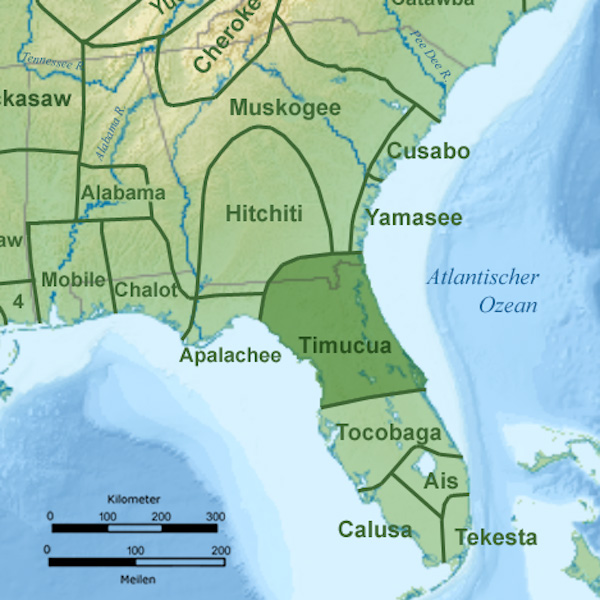
Map of Native Peoples in our region
Support Our Work
Your gift funds SEYM programs, events, staff salaries, communications, and representative travel.
Latest Posts
WIBM & Michener Lecture Weekend
Friends met together in person and online for our Winter Interim Business Meeting on Saturday, January 25 and the Michener Lecture on Sunday, January 26. Orlando Monthly Meeting hosted the event, providing warm hospitality and great food throughout the weekend. Some highlights of Winter Interim Business Meeting include:
SEYM Welcomes DeLand Monthly Meeting
DeLand Worship Group became DeLand Monthly Meeting at a called Yearly Business Meeting held online on August 31st. Over 50 Friends were in attendance, and all present joyfully united in approving a minute recognizing DeLand Friends as a monthly meeting affiliated with SEYM, many voicing appreciation for all that they have done over the years, and for their activism in the wider community.
Meet our new Youth & Young Adult Coordinator
Rachel Dellinger has begun her tenure as our new SEYM Youth & Young Adult Coordinator (YYAC), as of August 1. She will be working with the Youth Committee and young adults to organize our youth program and events, as well as to provide support and resources for strengthening our community of younger friends and their families.
Summer Executive Committee Highlights
Friends gathered for a hybrid Summer Executive Committee Meeting on Saturday, June 22, at the Tampa meetinghouse and on Zoom. Tampa Friends provided warm hospitality and, as usual, really good food. Highlights included calling a special session of Yearly Business Meeting, to be held on August 31, and approving Rachel Dellinger as our new Youth and Young Adult Coordinator.
SEYM Community Preparedness
Part of climate resilience is being prepared for disasters. SEYM Friends have met online to discuss how individuals, families, Meetings, Worship Groups, and our wider communities can respond when facing extreme events such as hurricanes, storms, rising temperatures, or other hardships.
